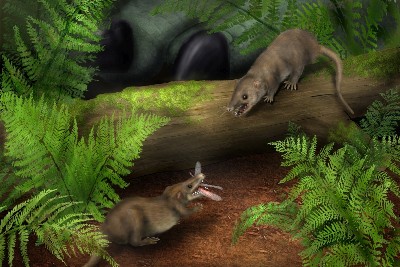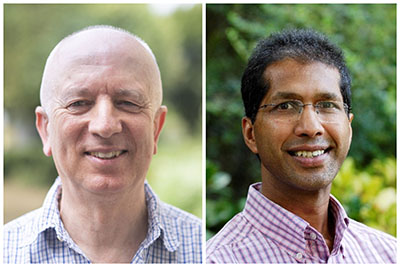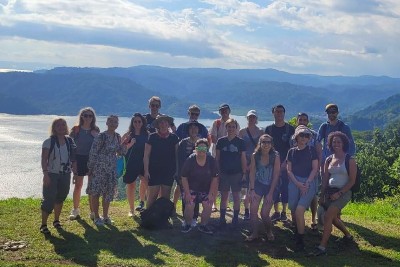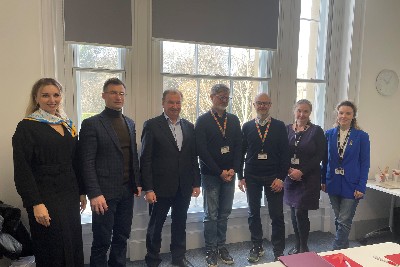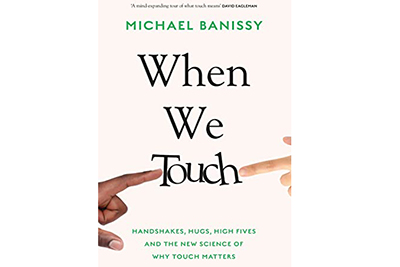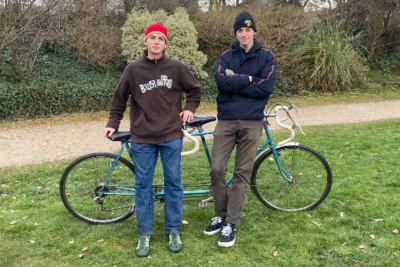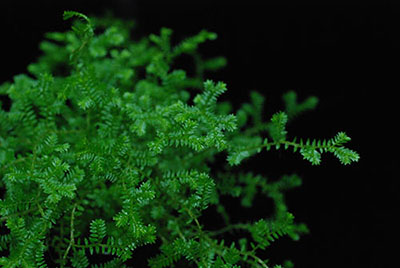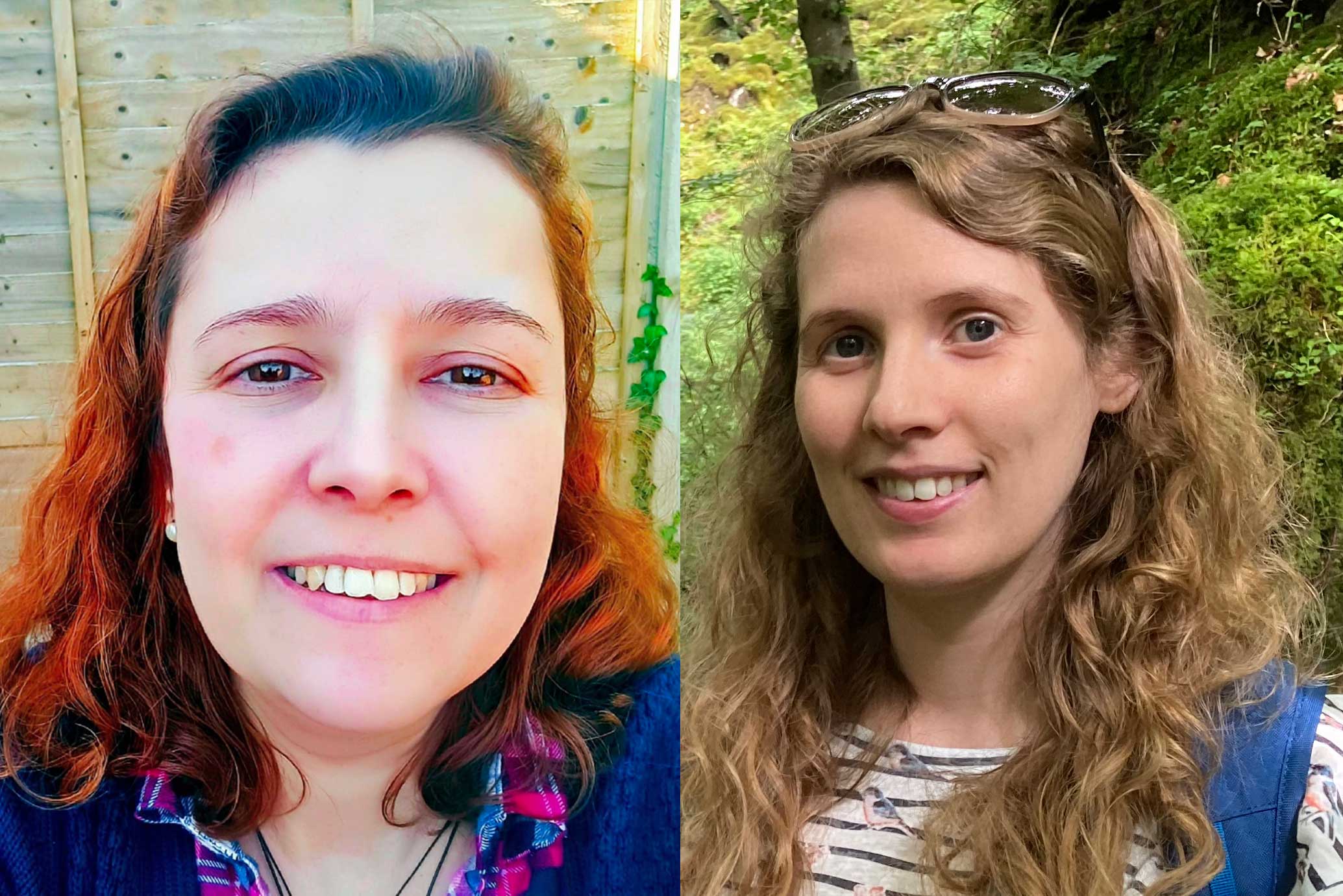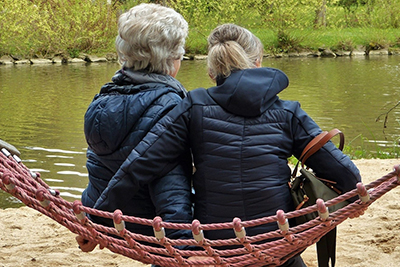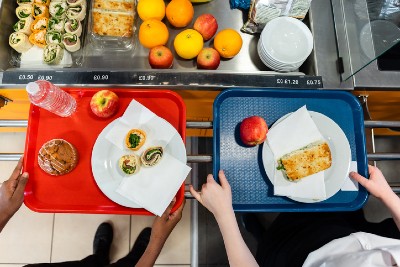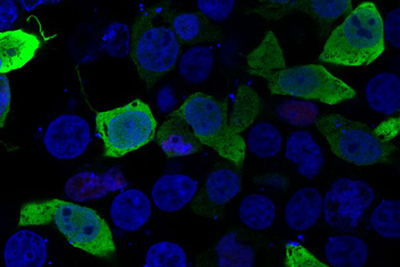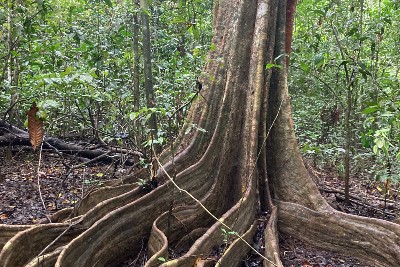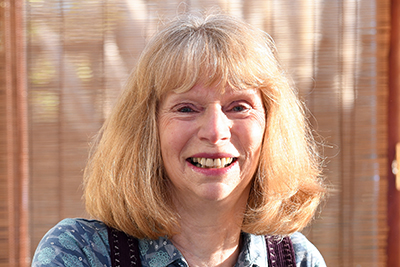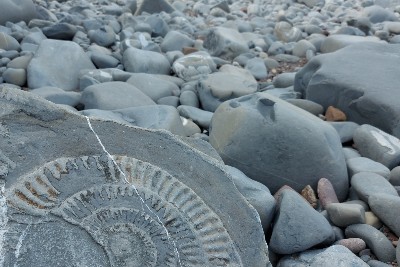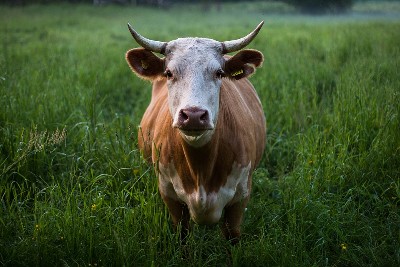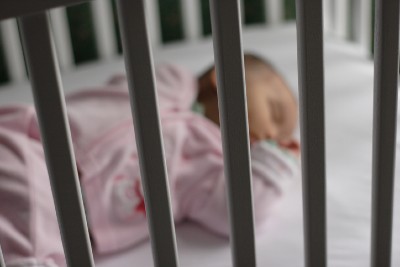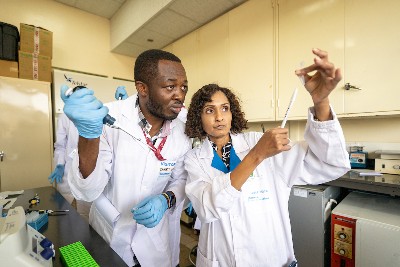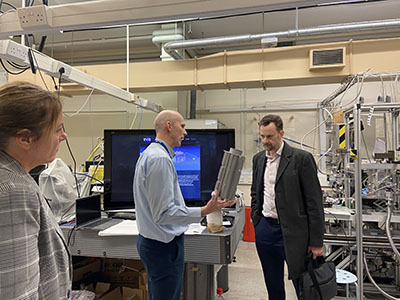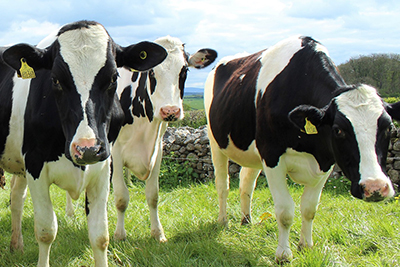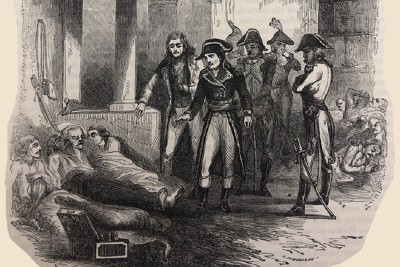Small and simple key to evolution success of mammals
Ancestors of modern mammals evolved into one of the most successful animal lineages by starting out small and simple, researchers have found.
Ancestors of modern mammals evolved into one of the most successful animal lineages by starting out small and simple, researchers have found.
An app built by a University of Bristol student helps detect essays written by AI bots like ChatGPT.
Two University of Bristol academics have been awarded prestigious ERC Advanced Grants totalling almost £2.5m Euros each for their ground-breaking work.
Research to improve battery performance has received backing from the Faraday Institution, a leader in energy storage.
A University of Bristol graduate who founded a start-up because he was sick of his job says it is now turning over half a million pounds a year.
A team of researchers will voyage more than a mile beneath the Pacific Ocean in submersible The Alvin, famous for diving to the wreck of RMS Titanic in 1986.
Today marks the one year anniversary of the UK-Ukraine Twinning Initiative which united the University of Bristol and the National Aerospace University: Kharkiv Aviation Institute in Ukraine as well as hundreds of other universities as part of a UK government-backed program to support higher education institutions impacted by the Russian invasion.
Why is a hugged person a healthier person? How does a shared handshake make you more likely to tell the truth? University of Bristol social neuroscientist, Professor Michael Banissy, one of the foremost experts on touch, explores the fascinating new science of one of our most overlooked senses in 'When we touch', published this week [30 March].
A new study has highlighted how cryptocurrency investors often suffer gambling-related harms – and online gambling outlets accepting cryptocurrency as wagers pose even greater risks.
Countries must intensify efforts to track HIV and hepatitis C virus (HCV) incidence among people who inject drugs, and to prioritise this group in prevention and elimination work, according to new University of Bristol-led research, published online in The Lancet Gastroenterology & Hepatology.
Two friends will pedal 2,000 miles from Bristol to Istanbul on a tandem they bought for £100. The only hitch? They’ve never ridden a tandem before
A new discovery by scientists at the University of Bristol changes ideas about the origin of branching in plants.
Two academics from the University of Bristol are among the 22 researchers to receive Discovery Fellowships from the Biotechnology and Biological Sciences Research Council (BBSRC).
University of Bristol student Jenna De Vera has been picked for the Welsh Six Nations squad.
A new festival that aims to open up conversations around death and bereavement will take place in May. Good Grief Weston will offer 30 workshops and events over eight days (Monday 1 to Monday 8 May) across more than 20 venues.
Depression in Alzheimer's has different risk factors than depression in older adults without the disease, finds a major new study in the Journal of Alzheimer's Disease. The University of Bristol-led research looked at over 2,000 people with the disease to explain why current anti-depressants are ineffective for people living with depression in Alzheimer's.
Many of the subjects taught and researched at the University of Bristol are world-leading, finds a global rankings released today.
Providing free school meals to all secondary pupils is feasible and acceptable, and brings many potential benefits, finds a new University of Bristol-led study of a pilot scheme in the London Borough of Hammersmith and Fulham, published today [22 March].
The University of Bristol is very proud to be the new home for The Research Institute for Sociotechnical Cyber Security (RISCS) – one of the oldest of the National Cyber Security Centre’s research institutes.
We are delighted to announce that we are now welcoming applications for the Kevin Elyot Award 2023, created in memory of the acclaimed actor and writer.
Using a new computational approach developed to analyse large genetic datasets from rare disease cohorts, researchers at the Icahn School of Medicine at Mount Sinai and colleagues including the University of Bristol, have discovered previously unknown genetic causes of three rare conditions: primary lymphedema (characterised by tissue swelling), thoracic aortic aneurysm disease, and congenital deafness.
For the first time ever authors, journalists, film makers and scientists from across the world are being asked to share their experiences of pressure to remove or soften the exploration of the climate crisis in their work.
A high blood caffeine level might curb the amount of body fat a person carries and their risk of type 2 diabetes, suggests research by the Karolinska Institute, University of Bristol and Imperial College, London, and published in the open access journal BMJ Medicine.
A pioneering global study has found deforestation and forests lost or damaged due to human and environmental change, such as fire and logging, are fast outstripping current rates of forest regrowth.
Learning, remembering something, and recalling memories is supported by multiple separate groups of neurons connected inside and across key regions in the brain. If these neural assemblies fail to sync together at the right time, the memories are lost, a new study led by the universities of Bristol and Heidelberg has found.
The Universities of Bristol, Nottingham, and Birmingham have been awarded a major £2.6 million Wellcome Discovery Grant for a six-year project which will use philosophical expertise to help bring patient voices into healthcare research and practice.
One of the first people to be transfused with red blood cells grown in a laboratory has spoken about her experiences.
Evidence from past extinctions cannot be used as a definitive way of predicting future biodiversity loss, scientists have found by using AI.
Hotter, more humid weather conditions and a history of overheating may be factors in predicting whether a Thoroughbred racehorse will suffer an incident of exertional heat illness (EHI), according to new research led by the University of Bristol and published today [14 March] in Scientific Reports. The findings, based on data from British racecourses, could be used to reduce the risk of racehorses experiencing EHI, particularly given the warming climate and more frequent hot race days.
One of the first practical applications of the much-hyped but little-used quantum computing technology is now within reach, thanks to a unique approach that sidesteps the major problem of scaling up such prototypes.
Livestock dung could be used to create the next generation of cellulosic materials, according to a new report.
Change is needed to the way safer sleep information is communicated, if risks to babies from unsafe sleeping practices are to be reduced, according to a new report from the universities of Oxford, UCL, Bristol and Newcastle. This was prompted by the government, in the wake of sudden death in infancy data, in an attempt to identify what type of support was needed to reduce the incidence in all families.
Active monitoring of prostate cancer has the same high survival rates after 15 years as radiotherapy or surgery, reports the largest study of its kind today. The latest findings from the ProtecT trial, led by the Universities of Bristol and Oxford, are presented today [12 March] at the European Association of Urology (EAU) Congress in Milan and published in the New England Journal of Medicine.
The University of Bristol’s CONNECTED Network has trained 21 plant scientists from 11 countries in ‘Vector and Virus Diagnostics’ in Nairobi, Kenya.
An analysis extending from southern Portugal to northern Norway highlights the importance of temperature in determining where fish species are found.
Dr Taj S Mattu has been awarded a Royal Society Entrepreneur in Residence (EiR) at the University of Bristol.
Four University of Bristol teams have for the first time qualified for the European University Sports Association (EUSA) Championships.
Dr Paul Bate, Chief Executive of UK Space Agency, visited the University to meet some of the academics at the heart of research into next-generation space technology.
Do you work with bovine tuberculosis (bTB)-infected cattle? If so, researchers at the University of Bristol are inviting people to take part in the ZooTB study.
The same genetics that helped some of our ancestors fight the plague is still likely to be at work in our bodies today, potentially providing some of the population with extra protection against respiratory diseases such as COVID-19, according to research led by scientists at University of Bristol. However, there is a trade-off, where this same variation is also linked to increased autoimmune diseases such as rheumatoid arthritis and inflammatory bowel disease.
